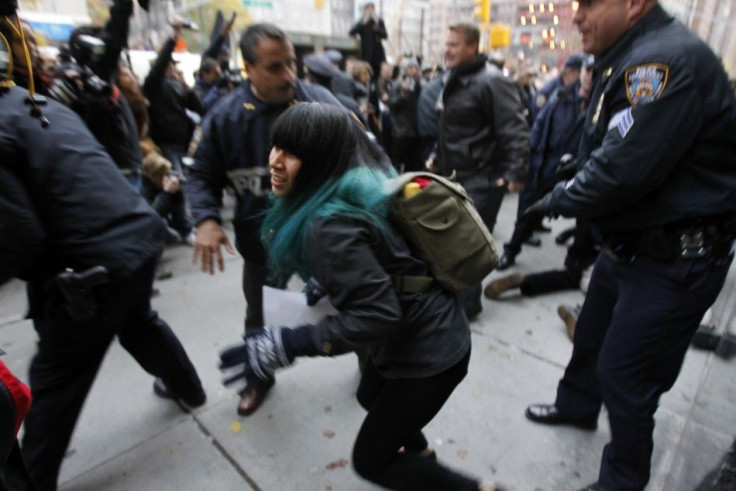NYPD High Tech Meets Occupy Wall Street: The Science of Crowd Control

We may never have to see an old woman covered in milk again, at least, if the New York City Police Department continues to amplify its non-invasive crowd disbursement techniques.
One of the latest gadgets added to the NYPD's arsenal of crowd disbursement weapons is the Long Range Acoustical Device (LRAD), also known as the sound cannon.
Though the cannon is being used as a powerful megaphone, the device can blast 110 decibels of paralyzing noise at crowds.
We don't use it to disrupt. We don't use it as some horrible noisemaker, NYPD spokesman Paul Brown told the New York Daily News. We set it up away from where a crowd is. We create a 50-foot safety zone. It sends out a clear, uniform message that can be heard for several blocks.
While the power of the sound cannon has been left to the imaginations of the Occupy Wall Street protestors, other equipment hasn't.
One of weapons-of-choice among police officers early in the protests was pepper spray, the chemical that irritates eyes and breathing. There were several instances in which pepper spray has been used during the Occupy Wall Street protests, including one instance where a police officer sprayed woman surrounded in orange fencing, another piece of equipment used by officers to manage the flow of large crowds.
Aside from audible irritants and chemical agents, police officers can always resort to ballistics, though they've managed to refrain from doing so at any of the New York Occupy protests. Rubber ballistics come in all shapes, sizes and devices, and can cause serious injury, which is why authorities tend to refrain from using such devices at all costs. As less-invasive technologies are created, officers are turning less and less to ballistics.
While ballistic crowd dispursment techniques are being laid to rest, there's no shortage of options for authorities to use—horses, pepper spray, tear gas, shields, batons, sound cannons, and more—so, if you choose to protest anywhere around the country, you'd better behave--or beware.
© Copyright IBTimes 2024. All rights reserved.





















